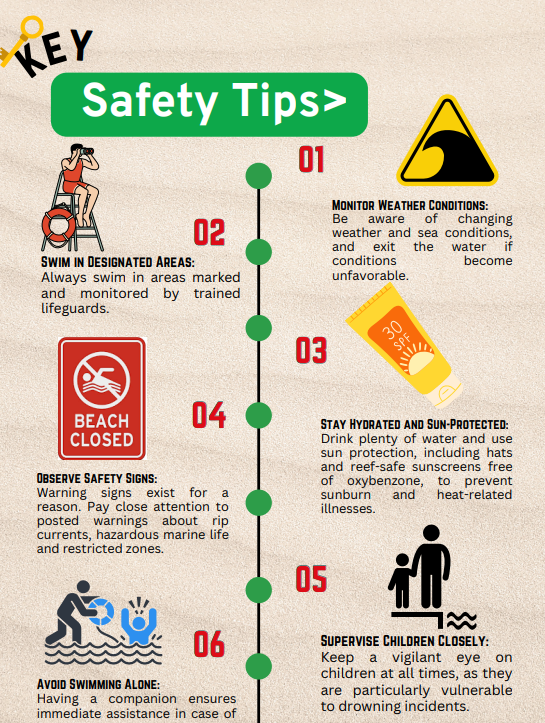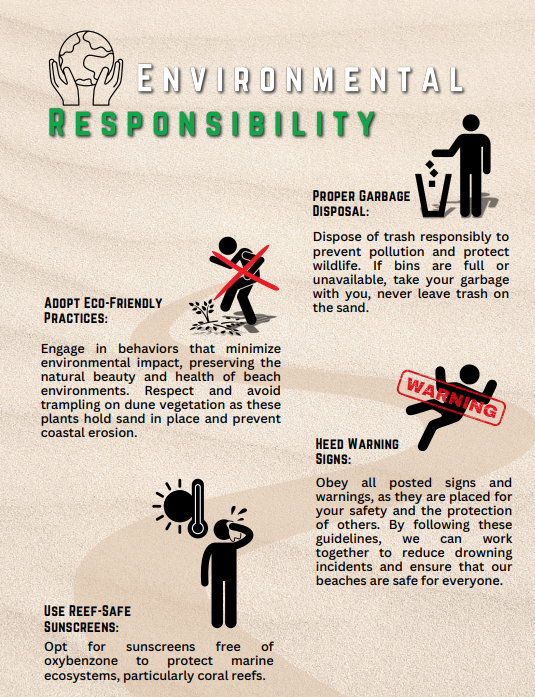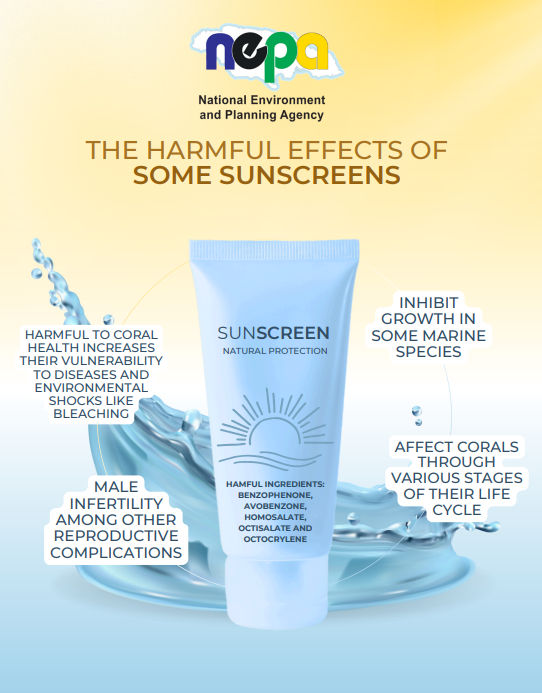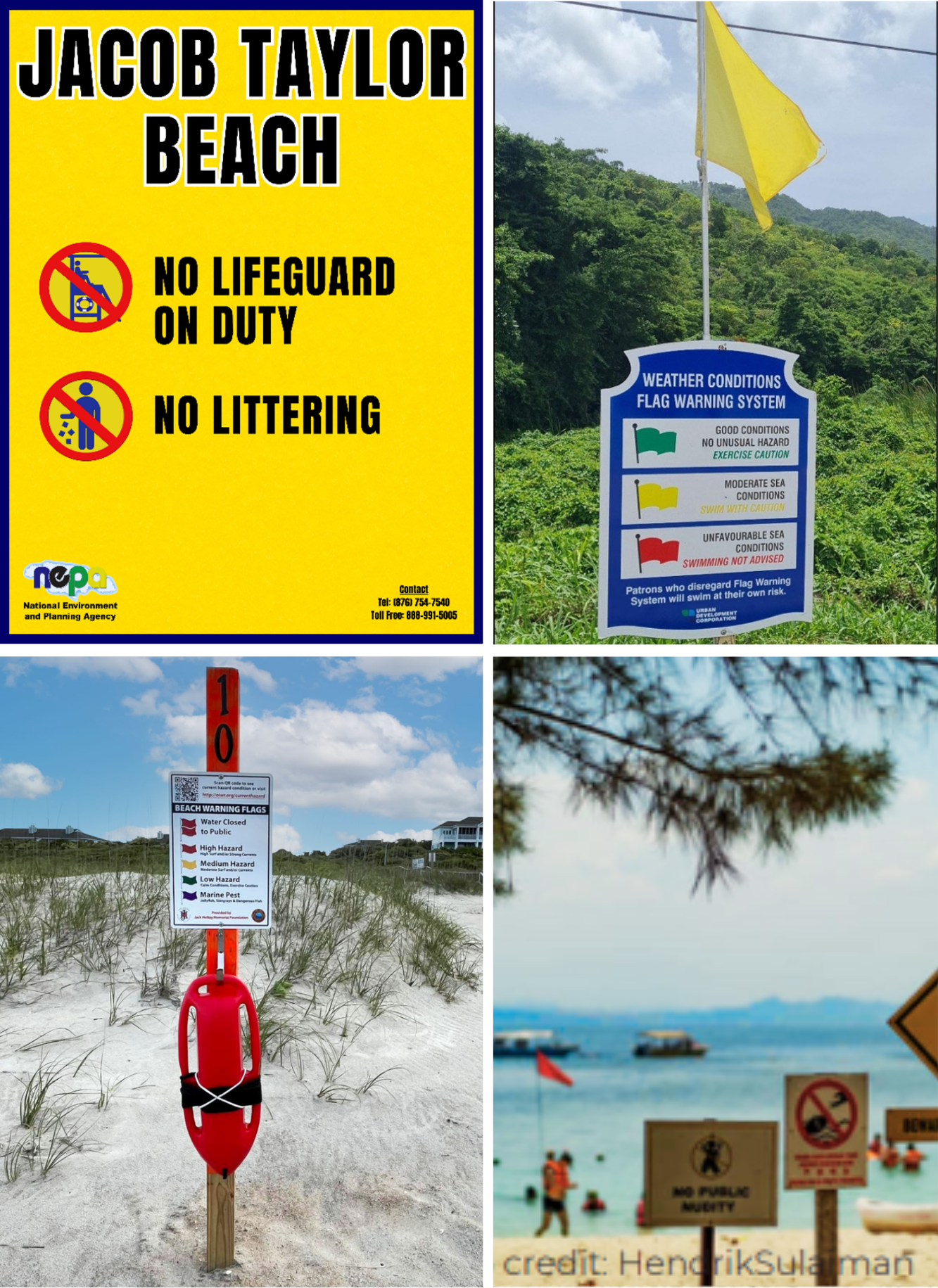Jamaica Beach Guide
 Beach Safety
Beach Safety
The Government of Jamaica recognizes the importance of beach safety and has implemented policies and regulations to enhance safety standards at public beaches. This commitment is reflected in existing and evolving legislative frameworks, including the Beach Control (Safety Measures) Regulations of 1957, which outline safety requirements for licensed beach operators and patrons. Additionally, the Draft Beach Access and Management Policy (Green Paper, 2020) recommends that: “All public sector agencies which own, manage or lease beaches will develop and implement a public awareness programme regarding beach safety, including rip currents and dangerous coastal features.”
Beach safety is vital not only for protecting individual lives but also for preserving the long-term sustainability of Jamaica’s world-renowned coastlines. The occurrence of drowning incidents across the island highlights a concern that demands urgent attention. This troubling trend underscores the critical need for increased public awareness, stronger safety measures, and more responsible behaviour to ensure our beaches remain safe for all.




Infrastructure and Signage:
- Heed Warning Signs: Obey all posted signs and warnings, as they are placed for your safety and the protection of others.
By following these guidelines and fostering a culture of safety and environmental stewardship, we can work together to reduce drowning incidents and ensure that our beaches remain safe and enjoyable for everyone.

Drowning Incident Reporting Tool
In response to the recent increase in drowning incidents at rivers and beaches across Jamaica, the National Environment and Planning Agency (NEPA) has launched a Drowning Incident Reporting Tool. This tool is designed for use by the public and allows individuals to report drowning incidents quickly and easily. Accurate data collection is critical for tracking trends, informing national beach safety strategies, and supporting the rehabilitation and development of public bathing beaches. Your input plays an essential role in helping to improve safety and prevent future tragedies in our coastal and riverine areas.
The tool can be accessed using the link below:
For further information and guideline please contact us at (876) 754-7595.











